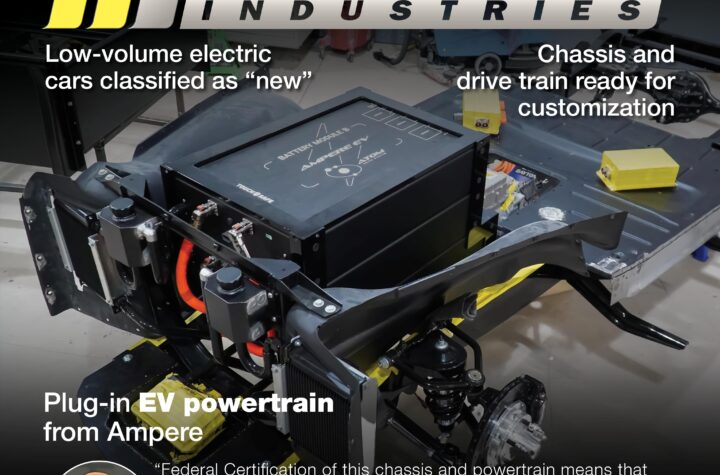
American companies have been moving away from the complexity and financial burden of defined benefit pension plans for years. Now, most employers have stopped offering these plans to new hires, and many are freezing benefits for current employees—at least for those not covered by union contracts.
The new norm is defined contribution plans, such as 401(k) programs. But these plans also evoke complex regulatory requirements. As HR departments know, keeping up with the requirements of the Internal Revenue Code and ERISA is a huge task.
How are companies, including those in the auto industry, meeting the challenge? Not particularly well, if the new “employee plan team audits” (EPTAs) by the Internal Revenue Service is any indication.
These IRS audits, which have ramped up sharply since mid-2005, target employers with more than 2,500 participants in company-sponsored retirement benefit plans—those that cover about 70% of all people participating in retirement plans in the U.S. So far, the results are sobering: The first 100 EPTAs identified some $3 to $4 billion in corrections and adjustments.
An EPTA is unlike other benefit plan audits that companies have experienced before. Envision a “SWAT” team of IRS actuaries, computer specialists, statisticians, lawyers and perhaps other experts descending upon your retirement plan records. The team may spend up to 300 staff-days during the audit process, with a significant portion of that time on-site. Along the way, targeted employers can expect to receive between 75 and 150 separate data requests from the EPTA team.
The IRS is looking for retirement plan problems across all industries. But there is a focus on struggling sectors such as manufacturing, or those that have had problems with pensions. As a target, the auto industry would appear to have high visibility at the IRS.
Even so, you may not have heard much about these audits. There’s good reason. While the IRS has discussed EPTA, the audits themselves are conducted in secret, and have not attracted media coverage. Certainly companies subjected to an EPTA aren’t eager to share the news about what happened.
What is the IRS looking for? The goal of the review is to ensure the plan operations conform to the multitude of regulatory requirements. However, as you would imagine, a big part of the investigations involves looking for errors in the way retirement benefits are calculated. An EPTA will also examine the underlying information necessary for those calculations, such as earnings, contributions, and service. Every company with a retirement plan tracks these factors, of course. But the question is how accurate are those records? Especially for large companies with decentralized operations where data is being collected at the local level at many locations, it can be very difficult to maintain and update records precisely—especially given today’s highly mobile workforce.
An area of particular concern for the IRS is the manner in which employers determine an employee’s compensation for retirement plan purposes. There are multiple ways to define “compensation.” In our experience, and based on information shared by the IRS, employers often use the wrong one. Suppose, for example, that your plan sets an employee’s retirement sum according to an average of earnings over a fixed period at the end of his or her career. Looking at W-2 forms is one measure of income. But suppose the employee relocated during the calculation period and the company paid for certain incidental costs. Those payments would appear on the employee’s W-2 records but wouldn’t necessarily be included when figuring compensation.
It isn’t entirely surprising that companies make operational errors in administering their retirement plans, given the complicated regulatory scheme. Still, discovering mistakes only after an IRS audit has begun is a painful way to learn. Our concern at Ernst & Young is that many companies, including those in the auto industry, don’t seem to be aware of the risks here. Over the past few years, many employers have been focused on Sarbanes-Oxley requirements. But unless they act now, they may find themselves facing sobering consequences surrounding mistakes in handling their retirement plans.
The ultimate penalty coming out of an EPTA would be a decision by the IRS to disqualify a company’s retirement plan. Such a decision would wipe out the tax benefits of a pension plan and make the company immediately liable for not just this year’s taxes but those on prior years as well. For big plans, the penalty could run into the billions of dollars. Fortunately, that devastating outcome is very unlikely. More probable would be a negotiated fixed settlement in addition to requiring the company to fix the problem.
But there are proactive steps employers can take now to avoid huge liabilities later on. Specifically, as suggested by the IRS, a company could retain advisors to conduct a mock review of their retirement plans. Ernst & Young is one of the companies that can provide that service. Such a review would use an efficient process that mimics an EPTA but is more focused and targeted to avoid overburdening individuals responsible for plan administration.
Suppose your company uncovers an error that must be corrected. IRS rules include mechanisms that reduce an employer’s exposure to potential future penalties as it takes steps to self correct certain violations. Self-correction allows companies to fix certain errors and document the steps taken. The IRS also has a more formal program to handle retirement plan problems. Under this option, a company acknowledges errors to the IRS, pays a fixed fee of up to $25,000 and obtains pre-approval from the IRS for the proposed correction. During the correction period, which usually runs from 12 to 24 months, the IRS is generally prohibited from auditing the company, including an EPTA.
Still, being proactive to correct problems now will pay off later. The new wave of IRS scrutiny of pension programs is still ramping up, and the chances of your company coming under an EPTA are rising. Now is the time to review your plans and understand how they operate with respect to all the various regulatory requirements. If you turn up problems, take advantage of existing IRS programs to fix them. And do it now.
Thomas Squires Senior Manager Ernst & Young Human Capital Practice Global Automotive Center, Troy, Mich.















More Stories
Meet Rita Case – recipient of 2024 NAMAD Lifetime Achievement Award
How Much Can You Save Annually by Switching to Energy-Efficient Rotary Solenoids
Navigating the Electrifying Future of Automotive Batteries – Insights from Focus CEO on Lithium, Graphene, and Emerging EV Tech Trends